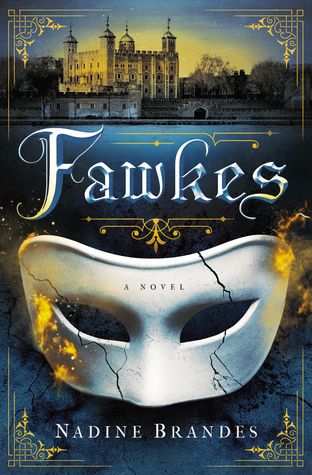
DNF- So Much Wangst, So Little Action and Immersion

Thomas Fawkes is turning to stone, and the only cure to the Stone Plague is to join his father’s plot to assassinate the king of England.
Silent wars leave the most carnage. The wars that are never declared, but are carried out in dark alleys with masks and hidden knives. Wars where color power alters the natural rhythm of 17th century London. And when the king calls for peace, no one listens until he finally calls for death.
But what if death finds him first?
Keepers think the Igniters caused the plague. Igniters think the Keepers did. But all Thomas knows is that the Stone Plague infecting his eye is spreading. And if he doesn’t do something soon, he’ll be a lifeless statue. So when his Keeper father, Guy Fawkes, invites him to join the Gunpowder Plot—claiming it will put an end to the plague—Thomas is in.
The plan: use 36 barrels of gunpowder to blow up the Igniter King.
The problem: Doing so will destroy the family of the girl Thomas loves. But backing out of the plot will send his father and the other plotters to the gallows. To save one, Thomas will lose the other.
No matter Thomas’s choice, one thing is clear: once the decision is made and the color masks have been put on, there’s no turning back.
-------------------------------------------------------------------------------------------------------------------
I tried to get into this one and struggled for literally months to finish it, but I give up. This book doesn't hold my attention at all.
What intrigued me to pick it up forces me to put it down. Tying the Guy Fawkes legend into an urban fantasy Victorian/Gregorian English setting is an appealing idea, but the lack of urgency in the story, the endless inner monologues and piecemeal explanation for what Color Magic is all about and why there's such trouble between the differing factions will have you losing interest fast.
A big letdown for me was the characterization, especially Emma. While the whiny, emo protagonist Thomas was bad enough- granted he had a sense of urgency with his condition, but that only seemed to come whenever the author arbitrarily decided she needed to insert some drama- Emma almost felt like a betrayal. Maybe I missed something, but the sudden reveal of Emma as a black woman killed any further interest I had. It felt cheap & forced, especially when there was not even a hint to this beforehand, so why the deception? To make Thomas seem more sympathetic and juxtapose the rivals/bad guys as more eeeevil. When you club your readers upside the head with cheap tricks to try and make them feel for the characters, you've lost.



